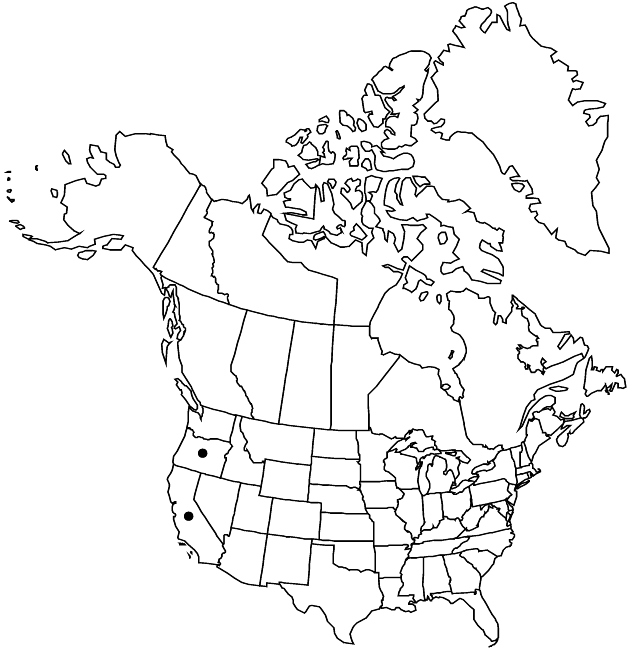Microseris laciniata subsp. siskiyouensis
Sida 21: 195, figs. 1, 2A, C. 2004.
Stems usually branched. Leaves linear to narrowly lanceolate, entire or pinnately lobed. Outer phyllaries not spotted, linear to ovate-deltate, smallest 1–1.5 mm wide, apices acute to acuminate, abaxial faces usually scurfy-puberulent. Pappi of 9–24, white, glabrous, aristate scales 0.5–2 mm, aristae barbellate. 2n = 18.
Phenology: Flowering May-–Jul.
Habitat: Loams or gravelly or rocky soils, rarely serpentine-derived, hillsides and valley flats, open grassy sites and woodlands
Elevation: 100–2100 m
Discussion
Subspecies siskiyouensis is known only from the Klamath Mountains, principally in Del Norte and Siskiyou counties, California, and Curry, Josephine, and Jackson counties, Oregon. It is found in open, rocky sites as well as woods, mostly at middle elevations. In the Illinois River Valley, Oregon, where it occurs together with Microseris howellii, the two are ecologically distinct. Microseris howellii is always found on rocky, open serpentine substrates; subsp. siskiyouensis is in mixed evergreen woodlands on better developed loam soils (K. L. Chambers 2004b).
Selected References
None.
